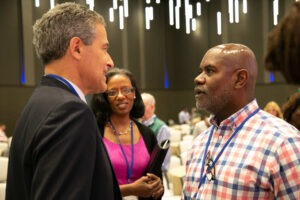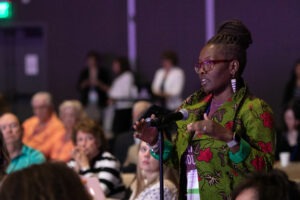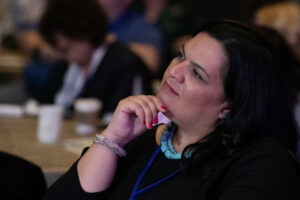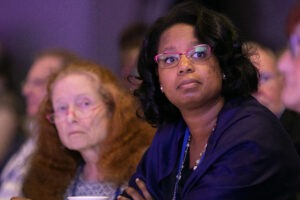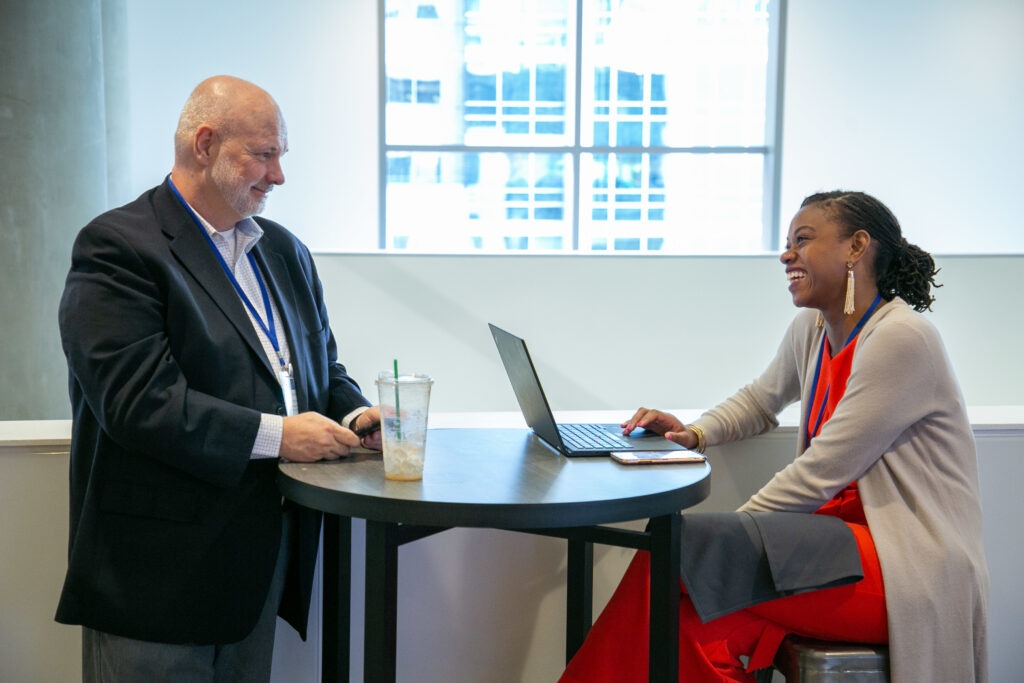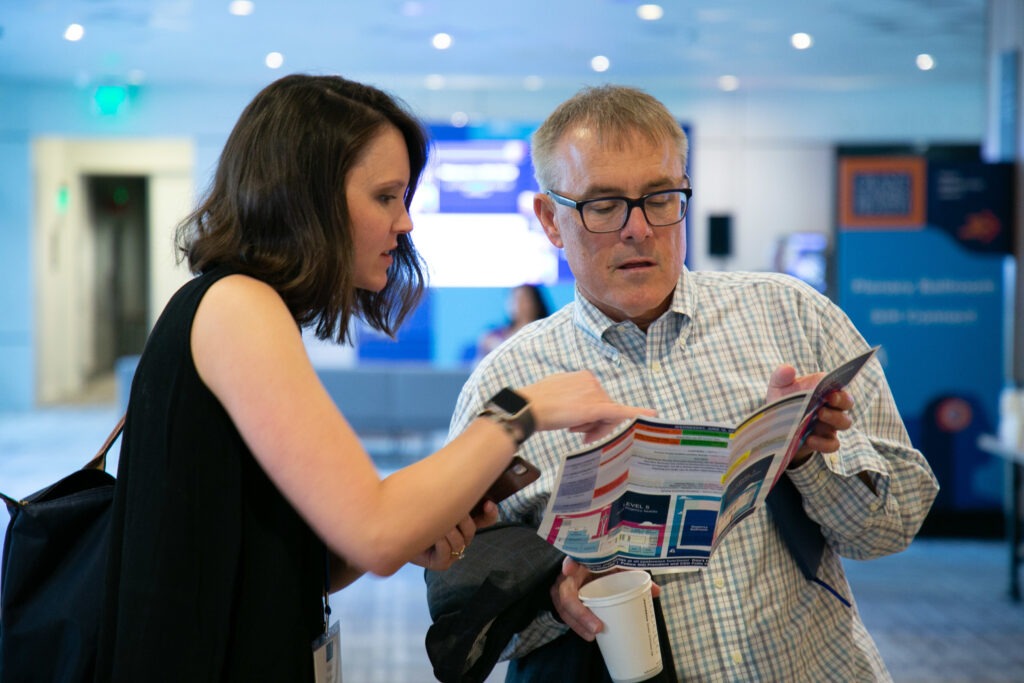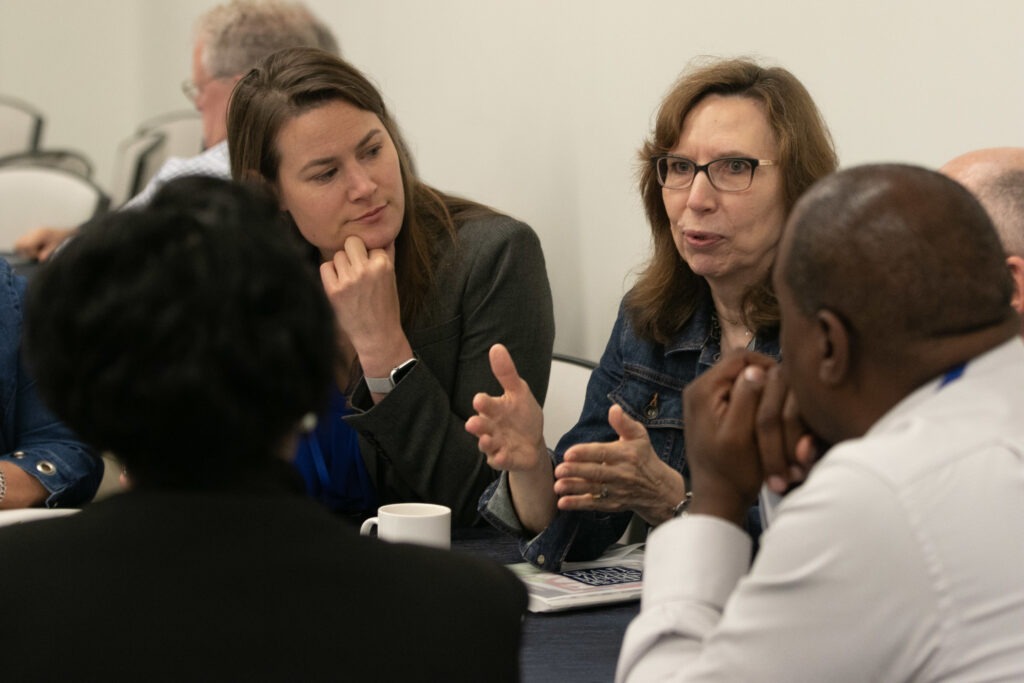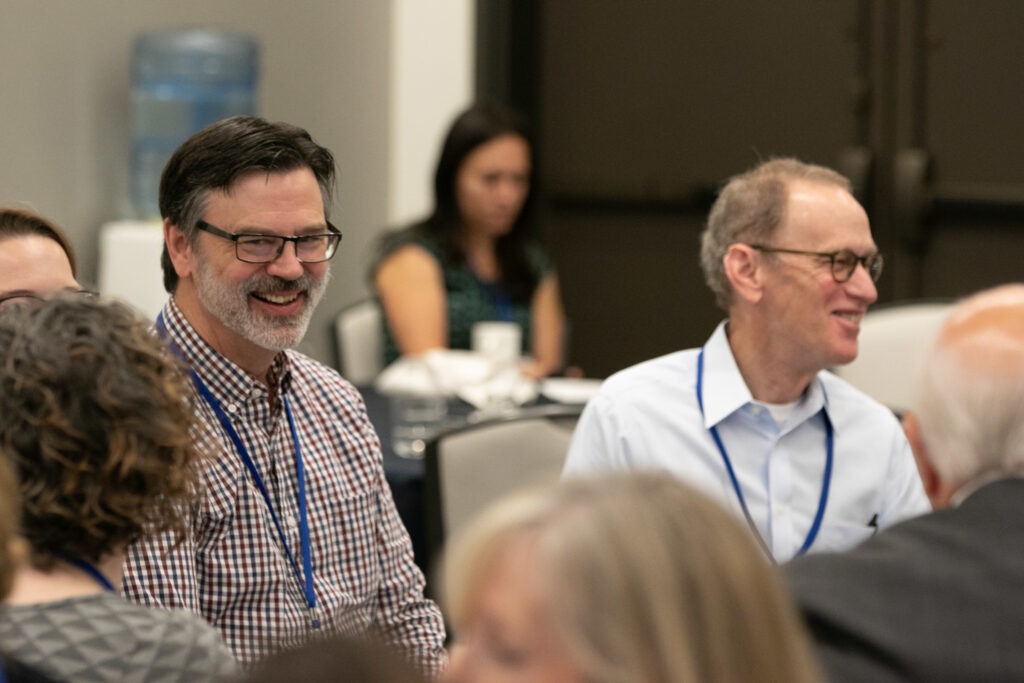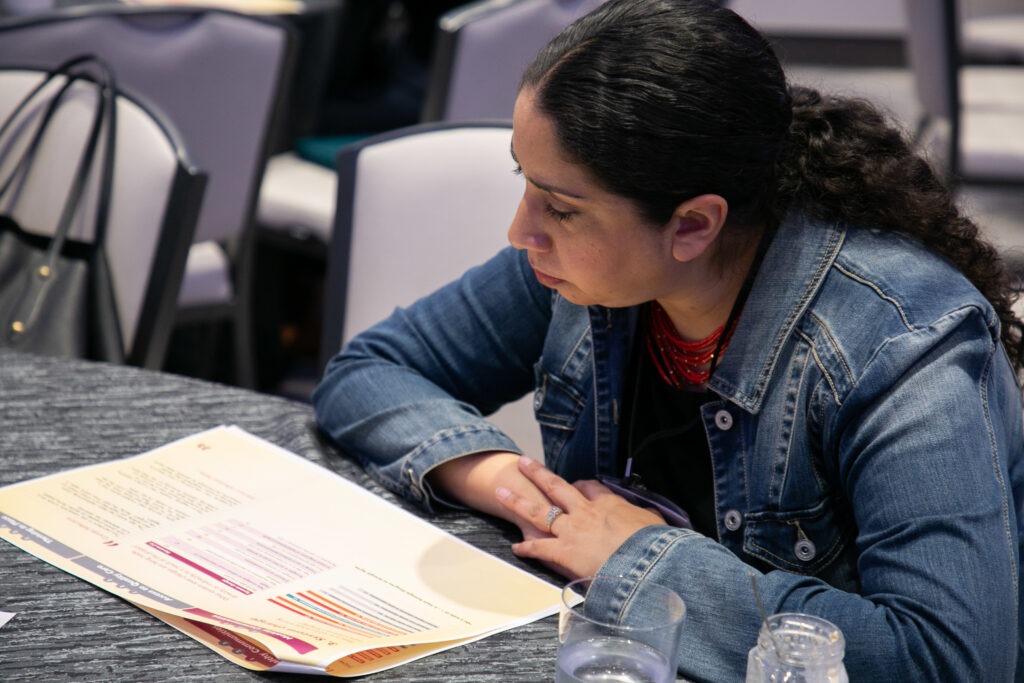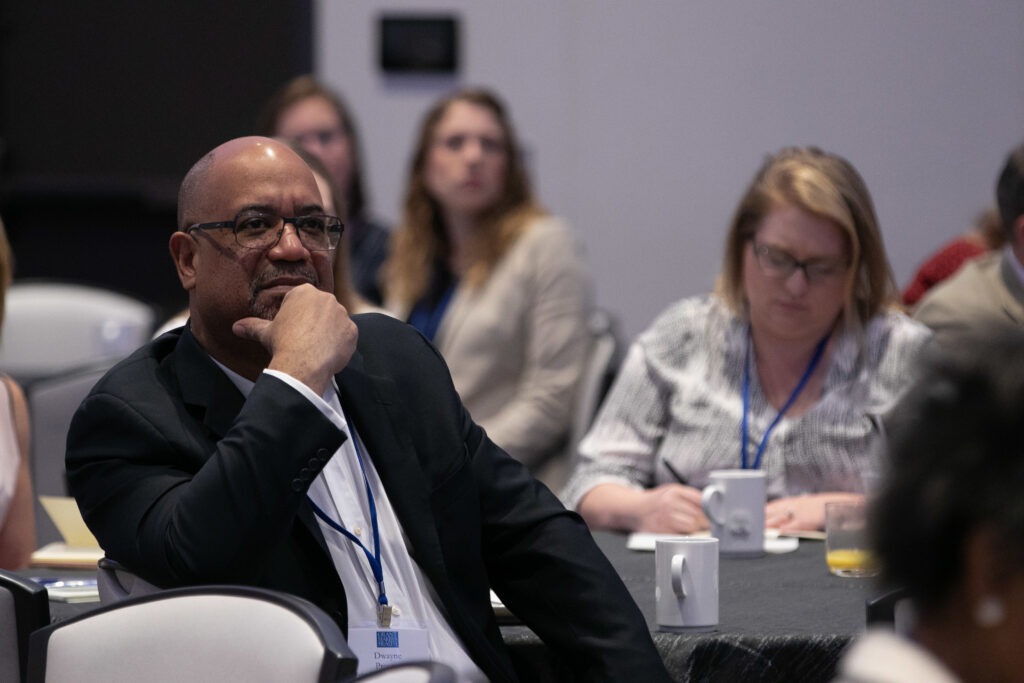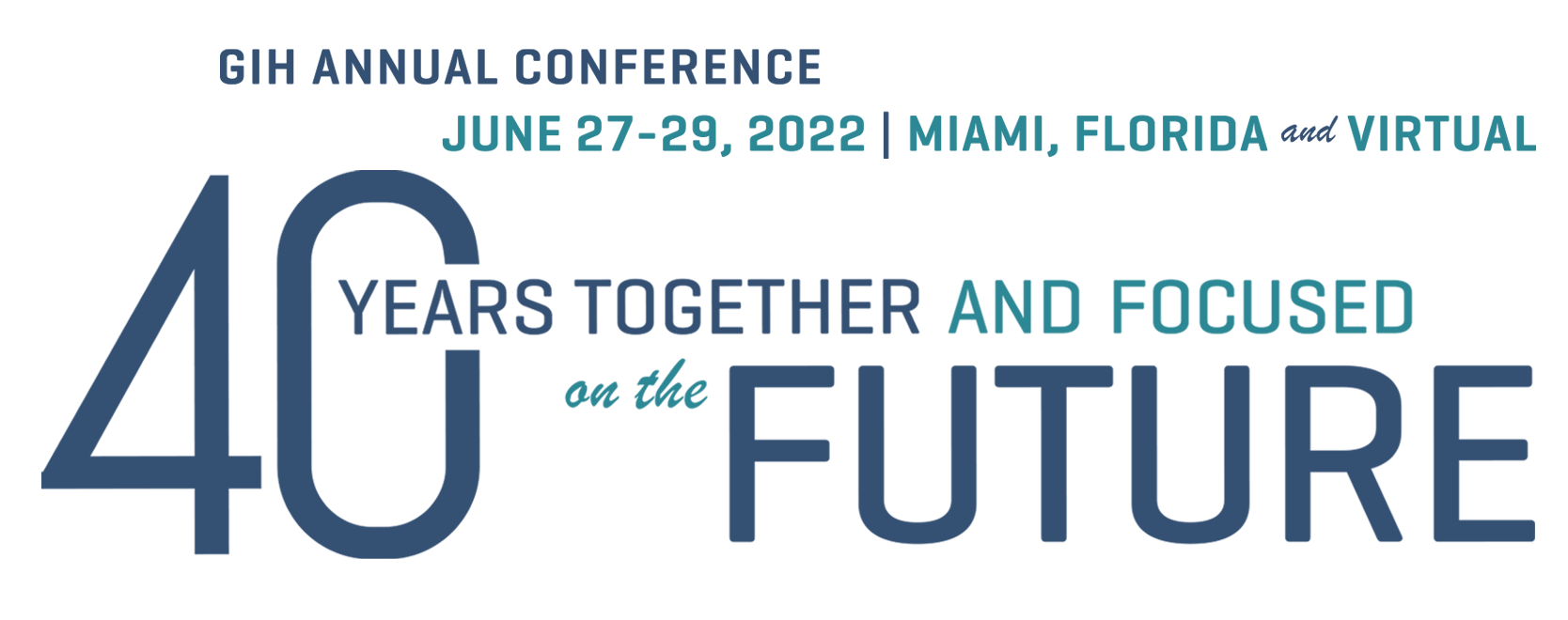
Agenda
All Sessions Are Listed in Eastern Daylight Time
View by day: Monday, June 27 | Tuesday, June 28 | Wednesday, June 29
* Indicates conference activities limited to foundation staff and trustees
Monday, June 27
7:00 a.m. – 7:00 p.m. Registration Open
8:00 – 11:30 a.m. Site Visits (In-person only)
- Climate, Heat, and Health Equity: A Learning Tour of Miami-Dade County
8:00 a.m. departure time
Miami-Dade County is a leader in addressing urban heat island effect and extreme heat, which causes more deaths than any other weather-related hazard. This learning tour through Miami—the Dade County Street Response Clinic, local parks, worksites, and public space—focuses on the intersections of climate, heat, and health equity from the perspective of community leaders. Catalyst Miami, Florida Clinicians for Climate Action, We Count!, the South Florida Housing Link Collaborative, the Solar and Energy Loan Fund, and the County’s Chief Heat Officer will highlight their work to address extreme heat and displacement due to climate gentrification, while sharing about the unique history and culture of Miami-Dade County, Florida. - Live Healthy Miami Gardens: Healthy Community Partnership
8:15 a.m. departure time
With a population of 113,012, the City of Miami Gardens is the third-largest city in Miami-Dade County and the largest predominantly African-American municipality in the state of Florida. With a median age of 35.6 and a median household income of $41,139, it is a vibrant and diverse city with a strong sense of community spirit and civic pride. Join this site visit to learn about Live Healthy Miami Gardens (LHMG), a coalition of 46 member organizations and over 100 individuals, working to drive citywide changes that measurably improve the health and life expectancy of the city’s residents. Designed to develop, implement, and sustain effective community-level health strategies related to the use of alcohol, tobacco, and other drugs; healthy eating and improved nutrition; mental health; physical activity; and primary health care, LHMG uses a collective impact model to bring people together and strengthen the community’s capacity for collaborative planning and collective action. - The Underline: Transforming Unused Land into a Community Space and Asset
8:30 a.m. departure time
In a city where only seven percent of the land is designated park space, you have to get creative when growing designated green spaces in a rapidly growing community. Visit the first phase of The Underline, which will ultimately become a 10-mile linear park connection for all of Miami, to see how the repurposing of land beneath the Miami Metrorail is increasing opportunities for social interaction, exercise, and immersion in the native ecology. Through multimodal trails, gathering spaces, native pollinator gardens, bioswales, and public art, The Underline is engaging community members in multigenerational health and wellness, educational, cultural, and recreational programming.
8:30 – 10:00 a.m. Focus Groups (In-person only)
- Focus Group on GIH’s Leadership and Influence
GIH’s new strategic plan sharpens our focus on leadership and influence through the use of policy and advocacy. Funding Partners who preregistered for this focus group will help shape this body of work by sharing their thoughts on where to focus our efforts, how to engage Funding Partners in informing a policy and advocacy agenda, and how GIH can best support Funding Partners in their own policy and advocacy work. - Focus Group on GIH’s Programs and Products
How are you doing? How are we doing? Funding Partners who preregistered for this focus group will help us learn more about their interests, needs, and priorities. We’ll also solicit their feedback about specific GIH programming and products, and ask how GIH can help advance their work.
10:00 a.m. – 12:00 p.m. CEO Working Group on Access and Coverage (Invitational, In-person only)
Katie M. Keith, Director of the Health Policy and the Law Initiative at the O’Neill Institute for National and Global Health Law at Georgetown University, will kick off the conversation with an analysis of the most significant recent developments in health policy, including important legislative and regulatory updates. As this will be the working group’s first in-person meeting in two years, there will also be time on the agenda for group members to discuss their own grantmaking priorities, issues that are ‘keeping them up at night,’ and emerging opportunities for collective action. The agenda for this meeting was developed in consultation with the group's steering committee: Mark Constantine of the Richmond Memorial Health Foundation, Yvonne Goldsberry of the Endowment for Health, David Jordan of the United Methodist Health Ministry Fund, Barbara Leonard of the Maine Health Access Foundation, and Jennie Riley of the Rx Foundation.
11:30 am – 12:30 p.m. Lunch and Newcomers' Welcome (In-person only)
New to health philanthropy, GIH, or the annual conference? Attend our Newcomers Welcome and Lunch from 11:30 – 12:30 a.m. on Monday, June 27, to get tips on making the most out of the conference, meet other attendees, and learn more about what GIH can do for you. This fun hour of games and conversation will help you start your three days in Miami on a bright note!
12:45 – 2:00 p.m. Plenary – 40 Years Together and Focused on the Future
⏯ recording available on platform
Join us at the opening plenary to reflect on health philanthropy’s last 40 years and discuss the current state of health care, public health, and the challenges ahead. We are also excited to update attendees on the status of GIH’s strategic plan and what it means for Funding Partners and our broader community.
- Drew Altman
President and CEO
Henry J. Kaiser Family Foundation (KFF)
Founding Publisher
Kaiser Health News - Frances Padilla
President
Universal Health Care Foundation of Connecticut - Robert K. Ross
President and CEO
The California Endowment - Qiana Thomason
President and CEO
Health Forward Foundation
2:15 – 4:45 p.m. Workshops 
- Accountability and Transparency for Health Foundation Boards
How should health foundation trustees hold themselves accountable to their organizations, to each other, and most importantly to the communities they serve? While foundation trustees are legally obligated to fulfill fiduciary responsibilities, excellence in philanthropic governance demands going beyond the minimal standards set by regulatory requirements. Highly effective boards engage in a deliberate, ongoing process of self-reflection, assessment, and continuous improvement. They challenge themselves to consider: Are we investing philanthropic resources in the best possible uses? Does the governing board authentically represent the diverse interests and demographics of the communities served? Do we clearly and candidly communicate our values, strategic priorities, and decisionmaking? Do we actively engage community members in our deliberations? Can we do better? Join this stimulating, interactive workshop to explore governance policies and practices that promote a vibrant culture of accountability and transparency. - Applying Trust-Based Philanthropy: Evaluation and Learning
Trust-based philanthropy seeks to address the inherent power imbalance between foundations and nonprofits and to foster a more equitable nonprofit ecosystem. It also takes a more expansive view of evaluation and learning. This workshop will explore how health funders are building strong relationships with and learning alongside their grantee partners as they tackle complex issues. Participants will hear from funders operationalizing trust-based philanthropy about how they measure impact, including the tools they have developed to facilitate evaluation and learning. - Building Healthy, Resilient, and Equitable School Food Systems
The COVID-19 pandemic reinforced the importance of our nation’s school food systems as a vital resource for the health and well-being of children. With school instruction shifting online and childcare shutting down for much of the past two years, many communities struggled to provide their most vulnerable children with nutritious meals. These challenges have opened an important window of opportunity to improve our school food systems. Join this workshop for an engaging series of conversations with colleagues and leaders in the field about the current needs of families and children; opportunities for public-private partnership; and strategies to make our school food systems more healthy, resilient, and equitable. - Public Health Policy and Practice: Why Funders Should Care and What They Can Do
The COVID-19 pandemic has exposed cracks in public health infrastructure, workforce shortfalls, and policy challenges. Communities of color and low-income people have been most heavily impacted by systemic challenges to public health authority, infrastructure, and capacity. This workshop is designed to give funders an overview of why public health should be a programming and grantmaking priority and will provide concrete examples of how public health agencies can advance racial justice and health equity. The first hour will include a brief ecosystem overview of public health and a discussion of current trends and issues in public health, such as pre-emption and authority attacks, as well as capacity issues such as workforce development. The second hour will include a short panel on how philanthropy can address public health, and then move into small, action-oriented group discussions on topics such as the use of multisector collaboratives to advance public health and using intermediaries and public health institutes to address funding challenges or restrictions. Speakers will include leaders from public health, philanthropy, and health justice movements.
5:00 – 6:00 p.m. Plenary Session: Advancing Equitable, Quality Care for People with Serious Illness

Join us for a dynamic conversation about the challenges people with serious illness face in receiving quality care, why addressing these needs is critical to achieving health equity, and where there are opportunities for philanthropy to chart a better path forward.
- Nick Dionne-Odom
Assistant Professor, School of Nursing
University of Alabama at Birmingham
Founding Co-Director, Caregiver and Bereavement Support Services
UAB Center for Palliative and Supportive Care - Marisette Hasan
President and CEO
The Carolinas Center for Hospice and End of Life Care - Khaliah Johnson
Division Chief, Pediatric Palliative Care
Children’s Healthcare of Atlanta and Emory University’s Department of Pediatrics - Cardinale Smith
Professor, Division of Hematology and Medical Oncology and Brookdale Department of Geriatrics and Palliative Medicine
Icahn School of Medicine at Mount Sinai
Chief Quality Officer for Cancer Services
Mount Sinai Health System
6:00 – 7:00 p.m. Opening Reception (In-person only)
7:00 – 8:00 p.m. Film – "Hiding in Plain Sight"(In-person only)
Hiding in Plain Sight: Youth Mental Illness is a new public television documentary produced by Ken Burns about the mental health crisis among youth in America. The film premiers on PBS stations nationwide on June 27 and 28, but GIH conference attendees will have advance access to a 30-minute screener of the film. Following the screening there will be a moderated discussion to share reflections and efforts on addressing youth behavioral health. Information will also be shared on how to host local screenings of the film with dialogue and skill building in your own community.
Tuesday, June 28
7:00 a.m. – 6:00 p.m. Registration Open
7:00 – 7:45 a.m. Power Walk & Sunrise Yoga (In-person only)
- Enjoy a brisk walk along our coastal beaches with fun facts about our native marine and botanical life and even cross over to Lincoln Rd and see what the “5th Avenue of the South” really means before heading over to Soundscape Park and hearing out the transformation from concrete jungle to lush landscape architecture.
- Set your intention for the day at this outdoor sunrise yoga session. This session will be for all skill levels and will be led by Mary Keel of Yoga 4 Change, a nonprofit organization that achieves lasting, demonstrative change for veterans, individuals who are experiencing incarceration, youth, and people living with mental health conditions through a purpose-driven yoga curriculum.
8:30 – 10:00 a.m. Networking Breakfasts * (In-person only)
* Activities limited to foundation staff and trustees
- Networking Breakfast on Health Equity
The Presidential COVID-19 Health Equity Task Force was established by Executive Order 13995, Ensuring an Equitable Pandemic Response and Recovery, which was issued on January 21, 2021. Part of a government-wide effort to identify and eliminate the health and social disparities that result in disproportionately higher rates of exposure, illness, hospitalization, and death related to COVID-19, the Task Force was charged with providing specific recommendations to the President of the United States for mitigating inequities caused or exacerbated by the COVID-19 pandemic and for preventing such inequities in the future.
Join this networking session to review the Task Force's final recommendations, discuss the roles philanthropy can play in the proposed implementation plan, and connect with other funders interested in aligning convening, grantmaking, and policy change efforts. - Networking Breakfast for Presidents, CEOs, and Executive Directors
This informal networking session offers CEOs the opportunity to connect with and learn from their peers. Join the discussion ready to share the questions and issues keeping you up at night! - Networking Breakfast on Rural Health
Join us in this informal gathering to hear more about federal resources that are being targeted to rural communities, followed by brainstorming with peers about how to build momentum on key challenges in rural health. - Networking Breakfast for Trustees
Join other foundation trustees for breakfast and talk candidly (and confidentially) about the challenges and opportunities of foundation governance. This informal networking session will provide a space for sharing ideas and making connections. - Networking Breakfast on Youth Behavioral Health Equity
Even before the pandemic, the well-being of children and adolescents was worrisome and worsening. COVID-19 has exacerbated these trends and heightened existing disparities. Indicators of youth depression, anxiety, suicidal ideation, and substance use are on the rise. Black, Indigenous, People of Color and Lesbian, Gay, Bisexual, Transgender, and Queer or Questioning youth have reported higher rates of depression, suicide, and self-harm, while access to care is still limited and inequitable. This networking session will provide an opportunity for funders to connect, share, and discuss strategies to improve youth behavioral health. Findings from GIH’s recent youth behavioral health equity survey will be explored, and participants will have ample time to network in small groups.
10:15 – 11:15 a.m. Breakout Sessions
- A Human-Centered Approach to Life, Relationships, Sex, and Reproductive Autonomy
In the struggle for justice, these last two years elucidated the importance of centering the voices of people who have historically been denied access and opportunity to equity – especially reproductive health equity. Through an innovative and powerful human-centered approach, we partnered with young Latinas to explore how we might center their voices and desires to design relevant, culturally responsive solutions that moved them toward reproductive health equity and self-power. Come learn concrete details about how philanthropy can support reproductive freedom and whole-person outcomes for Latinx youth. - Centering Black Voices: A Case Study in Philanthropic Reparations
The future of philanthropy disrupts systemic redlining of Black communities and consciously seeks reparations. The emerging trend in philanthropy is a combination of unrestricted funding and technical assistance, but it’s not enough. The work must be rooted in authentic relationships and culturally-responsive programming. The REACH Healthcare Foundation offers a model for the future of philanthropy with insights generated from an innovative pilot to build power and capacity in Black-led, Black-serving organizations. A dialogue between the foundation, its community partner, and its consultant will illuminate key components of REACH’s theory about what it takes for philanthropy to effectively center Black voices. - Good Trouble: Philanthropy as a Force for Building Power for Change
In this moment of racial reckoning, an ongoing pandemic, widening disparities, and political polarization, philanthropy must respond and our response must have a greater impact. Panelists from three very different foundations - Universal Health Care Foundation of Connecticut, Melville Charitable Trust, and Robert Wood Johnson Foundation - will engage in a lively and interactive discussion about how their organizations are each driving an agenda of equity, power-building, organizing, and advocacy across health and social justice issues, to achieve systems change that benefits the most disparately impacted communities. Participants will learn about strategies they can adapt to their own foundations’ mission and culture.
- How a Healthy News Ecosystem Supports Healthy Communities
Investing in journalism and community news sources may not appear to be a health issue, but funders and grassroots groups are beginning to see the link between accurate information and healthy choices, especially during the COVID-19 pandemic. Hear from the Kate B. Reynolds Charitable Trust, a North Carolina health funder, about why they’re investing in a healthy news ecosystem - including a new local rural newspaper, a statewide health news outlet, and a local public radio station - and how that ecosystem is getting critical information to media deserts and beyond.
- Improving Access to Mental Health through Black-Led Community Partnerships
To help eliminate racial disparities in mental health care, a collaborative of private, community, corporate, and family foundations in Michigan are responding to the unmet need to increase mental health care in Black communities. The funders launched a pilot program to support Black-led community-based organizations to develop a more inclusive and informed approach to increasing access to mental health that addresses disparities and builds on Black community strengths. This session will share how the funding model uses an intersectionality lens, supports the strengths of community-based organizations, and helps advance access to safety-net primary care and mental health care providers.
- Learnings from the Frontline: Policy and Advocacy Lessons through Medicaid Expansion
What role can health foundations play to advance access to health coverage in states with policy environments that are challenging for pro-active health policies? Health foundations in Texas, Kansas, and Missouri will share lessons learned from their work to support Medicaid expansion. Panelists will share the many angles and approaches attempted, to varying degrees of success, and will share lessons learned that may inform other foundations interested in advancing health policies in predominantly red states.
10:15 – 10:35 a.m. Quick Takes
- Advancing a Health Equity Framework through Pandemic Response: Foundations' Leadership Role
How did a new local foundation in a highly diverse community that includes rural communities, migrant farmworkers, and historically underserved and underrepresented people in urban settings help reach COVID-19 vaccination rates that were much higher than those in its county, state, and the United States overall? How did this work position the foundation to advance an equity framework to envision community-oriented solutions and build health care infrastructure with an equity focus? This session will explore answers to these questions and illustrate a local quest for health equity.
- Using GIS to Visualize the Impacts of Philanthropy
⏯ recording available on platform
Geographic Information System (GIS) mapping tools enable funders to visualize the need for new partners, uncover gaps, and expand the reach of funding. This session will demonstrate the application of public datasets and grantee information to the allocation of rapid response COVID-19 grants made by a community foundation serving Los Angeles County, California. In the coming year, the foundation is investing in staff development to advance the use of GIS in its work.
10:45 – 11:05 a.m. Quick Takes
- Health System Engagement for Advancing Climate Solutions
Climate change is considered the greatest threat to human health this century, yet most health systems, institutions, and professionals are not equipped to address climate change and are not trained to recognize how climate change impacts patient care and health. The NorthLight Foundation developed a report that breaks down the impacts of climate change on patient health and care by medical specialty and shares strategies to protect patient health and advance health equity. Join this session to learn about how the report has already inspired a medical school to incorporate climate change into its curriculum and consider how health funders can advance climate solutions.
- The Community Benefit Insight Platform: Promoting Transparency to Inspire Action
Nonprofit hospital community benefit spending is meant to address the health inequities of communities served by these hospitals. To help monitor how these funds are directed, RTI International, with support from the Robert Wood Johnson Foundation, developed Community Benefit Insight (CBI). CBI is a web-based, publicly available resource that aggregates community benefit expense data reported to the IRS by U.S.-based nonprofit hospitals. The CBI platform promotes transparency by providing easy access to data. By making community benefit spending data accessible, searchable, and digestible, community stakeholders can leverage this data to promote health and reduce inequities.
11:30 a.m. – 12:30 p.m. Networking Sessions * (In-person only)
* Activities limited to foundation staff and trustees
- Networking Session on COVID's Impact on Child Health and Learning
Families and communities have been grappling with COVID's countless effects on children's health and well-being, presenting challenges to funders throughout the pandemic era. This networking session will feature Miami-area efforts to link funders and community partners with children and their families, followed by informal discussion about what's been going on in your communities.
- Networking Session for Communications Staff
Join this session to connect with peers responsible for external communications work at foundations and corporate giving programs. Participants will exchange ideas, share evidence-based communications practices, and identify possible solutions aimed at rebuilding trust in public health institutions and supporting the communities we serve. - Networking Session for Limited Asset Funders
Foundations with assets less than $30 million face unique challenges as they seek to maximize their impact in the communities they serve. At this informal networking session, peers will engage in an interactive conversation about their highest priority opportunities, issues, and concerns. Please note the $30 million asset amount is not intended as a rigid eligibility cut-off. Any funders who could benefit from joining this conversation are welcome.
- Networking Session on Telehealth
In recent years, more health foundations have embraced supporting telehealth as a solution to reduce the distance between patients and their health care. Additionally, in the wake of the COVID-19 pandemic, federal and state governments took action to remove telehealth policy barriers, creating new opportunities to build a better system. However, the future of those improvements is uncertain and much work remains to be done to ensure this service delivery mode is equitable for all. Join this session to engage with other funders and experts doing this work, learn about strategies to engage community members in articulating their telehealth needs, and explore how philanthropy can help.
11:30 a.m. – 12:30 p.m. Focus Groups (In-person only)
- Focus Group on GIH’s Leadership and Influence
GIH’s new strategic plan sharpens our focus on leadership and influence through the use of policy and advocacy. Funding Partners who preregistered for this focus group will help shape this body of work by sharing their thoughts on where to focus our efforts, how to engage Funding Partners in informing a policy and advocacy agenda, and how GIH can best support Funding Partners in their own policy and advocacy work. - Focus Group on GIH’s Programs and Products
How are you doing? How are we doing? Funding Partners who preregistered for this focus group will help us learn more about their interests, needs, and priorities. We’ll also solicit their feedback about specific GIH programming and products, and ask how GIH can help advance their work.
12:30 – 2:00 p.m. Plenary: Awards Luncheon

Join us for a special plenary luncheon recognizing the 2022 winners of the Terrance Keenan Leadership Award in Health Philanthropy and the Andy Hyman Award for Advocacy.
- Terrance Keenan Leadership Award in Health Philanthropy
Janice B. Yost
President Emeritus
The Health Foundation of Central Massachusetts - Andy Hyman Award for Advocacy
Evelyn Delgado
Executive Director
Healthy Futures of Texas
2:00 – 2:30 p.m. Wellness Break
Join us for this wellness break to refresh and relax between sessions with chair yoga! This session will be led by Mary Keel of Yoga 4 Change, a nonprofit organization that achieves lasting, demonstrative change for veterans, individuals who are experiencing incarceration, youth, and people living with mental health conditions through a purpose-driven yoga curriculum.
2:30 – 3:30 p.m. Breakout Sessions
- Bringing It Home: Local Impact Investing as a Tool for Equitable Development
Experiences of the past two years have activated philanthropy. Grantmakers have stepped up their community leadership efforts and quickly taken on new ways of doing. In the midst of this transformation, many foundation leadership teams and boards have identified impact investing as a critical tool to activate more of their assets in support of increased equity and impact in their place and a way to catalyze others in the community to invest too. This session will help attendees understand this tool's potential and show them how to accelerate their journey to becoming a local impact investing partner with their community.
- Now is the Time for Funders to Unite for Birth Equity
This nation’s maternal health crisis is one of our most pressing health needs and it cannot be solved with clinical interventions alone. Join this session to explore how funders can align their efforts to support a holistic approach to achieving birth equity that centers race, recognizes community leadership, and rewards collaboration.
- Opportunities to Enhance Community Climate Resilience
With the pandemic, extreme weather events, and other forces reshaping the new normal, health funders and decision makers are proactively developing approaches to reduce vulnerability and strengthen community resilience. Speakers, including a place-based funder, public health department official, state elected official, and tribal colleges leader, will offer insights about addressing climate, health, and equity goals from varied angles of intervention. Participants will have the opportunity to engage in conversation for further exploration of areas of intervention to boost community climate resilience.
- Partnering with Community-Based Organizations: Achieving Health Equity During and After a Public Health Crisis
In this session, CDC Foundation (CDCF) will lead a panel discussion with representatives from community-based organizations in Florida and Mississippi. Our goal is to explain how CDCF collaborates with these organizations and others to promote effective and equitable responses to the profound health inequities arising from the pandemic and to strengthen the local public health fabric to address other pressing public health issues.
- Sharing Power with Community Members for Better Health Outcomes
Engaging people with lived experiences can strengthen foundations’ work, build community power, and improve health outcomes, but can also cause harm and deepen mistrust if not done intentionally and authentically. A health foundation and its partners will discuss the messy but transformative work of embedding parent and community co-creation into funder practices and a child and family health equity initiative. The session will uplift diverse parent leader voices in sharing stories and learnings from this journey and feature a workshop element to help participants formulate ideas and action steps for advancing equitable community partnership in their own organizations and strategies.
- Where We Go From Here: From Commitment to Action for Racial Justice
Catalyzed by the pandemic and the movement for racial justice, philanthropy produced necessary and aspirational commitments to communities of color impacted by systemic racism and health inequities. But how can philanthropy move from commitment to action? This session will introduce participants to Healing through Policy: Pathways to Racial Justice, an initiative offering a framework for communities and funders to support practice and policy change for health and racial justice. Participants will learn about communities advancing efforts aligned with this framework and engage in candid dialogue about how philanthropy can rise to meet the needs of communities working towards racial justice. (This session includes small-group discussions that will not be livestreamed. We apologize for any inconvenience to virtual attendees.)
2:30 – 2:50 p.m. Quick Takes
- Engaging Congregations for Community Health
As a foundation formed by the Episcopal Diocese of Texas, the Episcopal Health Foundation engages churches and their congregations to develop partnerships that address complex social issues and transform community health. Attendees will hear stories about the ways congregations are addressing issues like mental health, the social determinants of health, racial justice, and systemic poverty with the support of the Foundation’s Congregational Engagement team, which provides technical support to undergird capacity building on advocacy, civic engagement, community engagement, and coalition building to help make their communities a healthier place to live.
3:00 – 3:20 p.m. Quick Take
- Expanding Grantees' Government Affairs and Fundraising Capacities
Nonprofits increasingly face insufficient and uncertain government funding, yet many - especially small and minority-led nonprofits - lack the resources to pursue public sector funding opportunities. Foundations - whether sophisticated policy advocates or political newcomer - can use their grantmaking, knowledge, and relationships to help grantees engage with government entities to sustain and scale their programs. This session will highlight the tactics employed by the Mt. Sinai Health Foundation and its peer funders which ultimately culminated in creating the Greater Cleveland ARPA Planning Council: a collective of nonprofits, community organizers, philanthropy, and state and local government organizing around a once-in-a-generation opportunity to access federal pandemic recovery resources.
3:30 – 4:00 p.m. Wellness Break
Join us for this wellness break to refresh and relax between sessions with this simple seated meditation. This session will be led by Mary Keel of Yoga 4 Change, a nonprofit organization that achieves lasting, demonstrative change for veterans, individuals who are experiencing incarceration, youth, and people living with mental health conditions through a purpose-driven yoga curriculum.
4:00 – 5:00 p.m. Plenary Session – LGBTQ and Racial Equity: Two Sides of the Same Coin

This plenary will cover recent policy threats affecting LGBTQ and BIPOC communities and explore how philanthropy can help build alliances that change systems and advance health equity for all.
- Skye Perryman
President and CEO
Democracy Forward - Nadine Smith
Co-Founder and CEO
Equality Florida
6:00 – 7:30 p.m. Reception: New World Center, home of the New World Symphony (In-person only)
 Please join us at the New World Center, home of the New World Symphony, a post-graduate fellowship program co-founded in 1987 by Ted and Lin Arison, and artistic director Michael Tilson Thomas. Since opening in 2011, the New World Center continues to be a pioneering laboratory at the intersection of music, education, technology, and architecture, generating new ideas about the way music is taught, experienced, and presented. Located in the cultural and civic heart of Miami Beach and just a short walk from the Loews Miami Beach Hotel, NWS has helped launch the careers of more than 1,150 alumni worldwide and is the first Florida commission of Pritzker Prize-winning architect Frank Gehry. Enjoy a beverage and a bite while you mix and mingle in the Performance Hall with colleagues old and new.
Please join us at the New World Center, home of the New World Symphony, a post-graduate fellowship program co-founded in 1987 by Ted and Lin Arison, and artistic director Michael Tilson Thomas. Since opening in 2011, the New World Center continues to be a pioneering laboratory at the intersection of music, education, technology, and architecture, generating new ideas about the way music is taught, experienced, and presented. Located in the cultural and civic heart of Miami Beach and just a short walk from the Loews Miami Beach Hotel, NWS has helped launch the careers of more than 1,150 alumni worldwide and is the first Florida commission of Pritzker Prize-winning architect Frank Gehry. Enjoy a beverage and a bite while you mix and mingle in the Performance Hall with colleagues old and new.
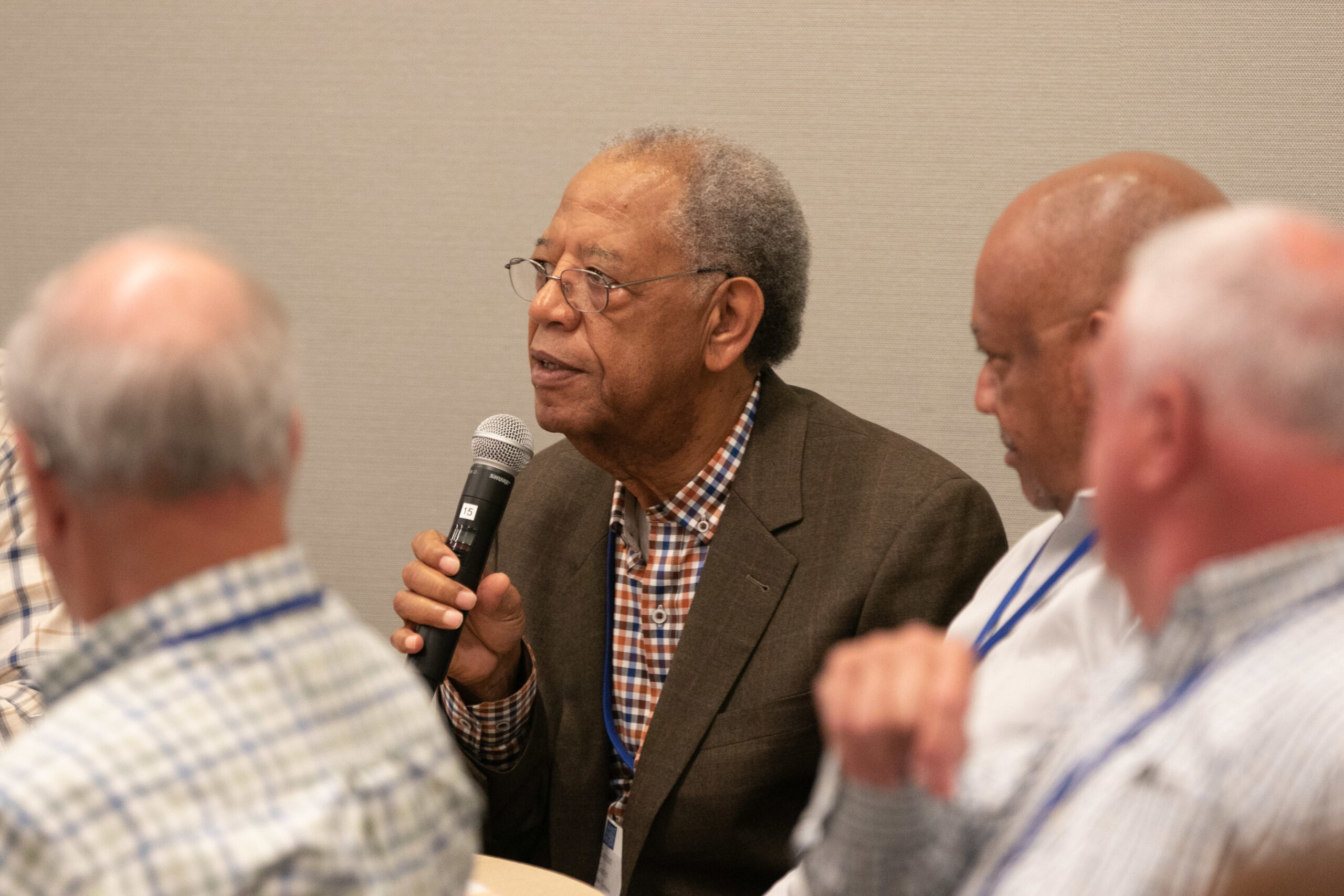
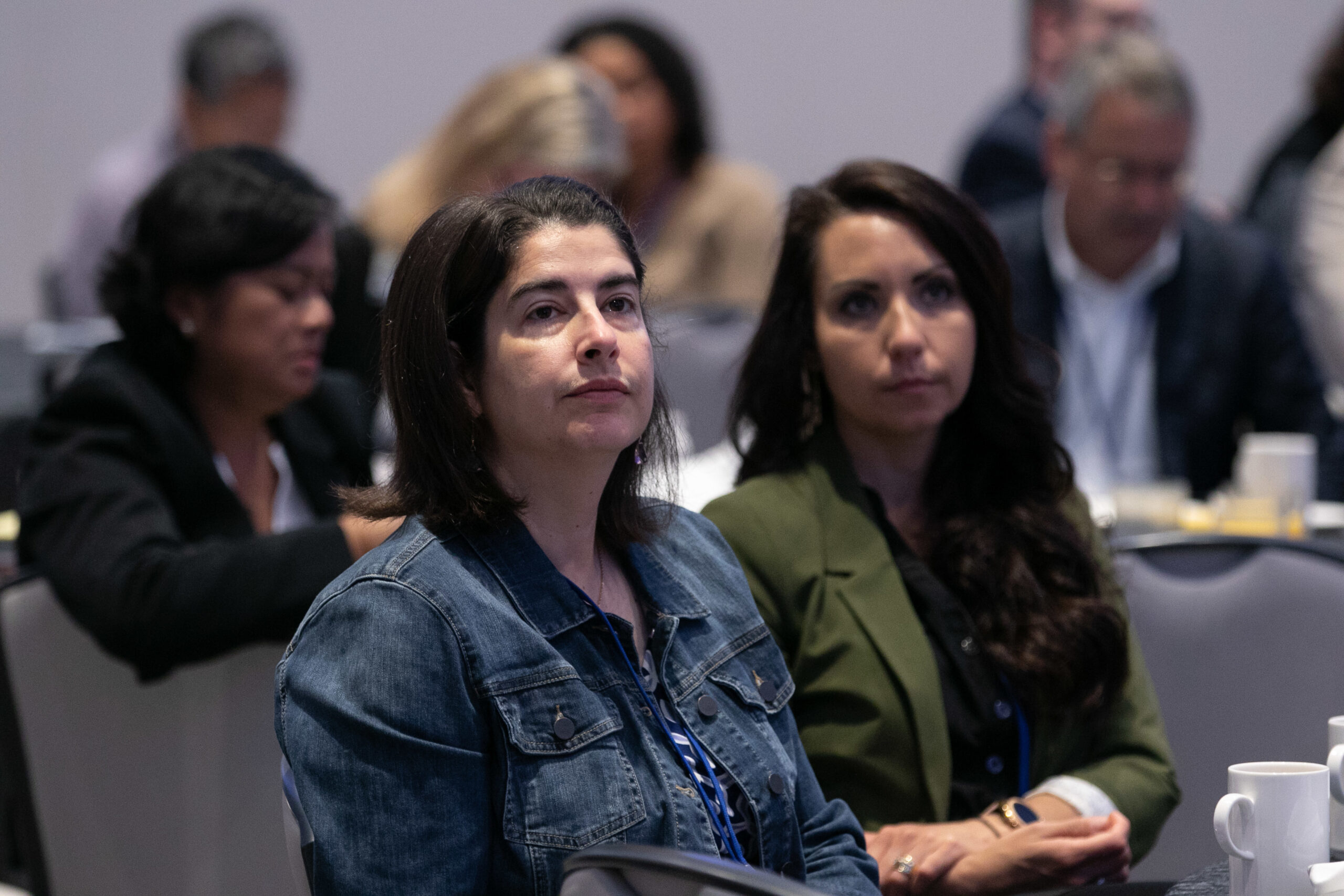
Wednesday, June 29
7:00 a.m. – 12:00 p.m. Registration Open
8:00 – 9:30 a.m. Networking Breakfasts * (In-person only)
* Activities limited to foundation staff and trustees
- Networking Breakfast on Community Power-building and Civic Engagement
Are you a health funder interested in building community power and promoting civic engagement? Join this informal, interactive networking breakfast to learn from your peers and share strategies for making progress and overcoming challenges in this critically influential work.
- Networking Breakfast on the Health Care Workforce and Provider Burnout
Many health funders have supported strategies that shore up the health care provider workforce. As strains on the delivery system---particularly shortages in the workforce---reach a critical level, the fruits of long-term strategies such as pipeline programs and scholarships may not appear soon enough. One key strategy is to sustain and support the health care providers that are already trained and working in the system by addressing health care provider burnout. Join this session to connect with your grantmaking peers and learn more about the problem, the impact on patients and providers, and strategies foundations can support that identify, prevent, and counteract burnout.
- Networking Breakfast on Oral Health
Funders interested in oral health have been turning their focus to health equity. This networking breakfast will introduce the Funders Oral Health Policy Network's Strategic Road Map to Oral Health Equity, followed by a presentation from an equity-oriented clinic/funder partnership from the Pacific Northwest. Join us as we think ahead on building effective work on this important health issue. - Networking Breakfast on Philanthropy’s Role in Ensuring Access to Reproductive Health
This session will provide an opportunity for funders to discuss the Supreme Court decision to overturn Roe vs. Wade, its effects on reproductive health, and how philanthropy can ensure everyone has access to comprehensive health care, including women of reproductive age. - Networking Breakfast on Trends and Topics in Conversion Foundation Governance
During this networking session, participants will discuss governance structures for health care conversion foundations including best practices, challenges, and altering board structures. Attendance is limited to foundation CEOs and trustees.
9:45 – 10:45 a.m. Plenary Session – Divided We Stand: Misinformation, Mistrust, and Our Inability to Solve Our Health Challenges
⏯ recording available on platform
Join us for an important plenary discussion about the misinformation crisis affecting public health, the public’s increasing mistrust of expertise, and how we can navigate and bridge our nation’s growing divides.
- Joanne Kenen
Commonwealth Fund Journalist-in-Residence
Johns Hopkins Bloomberg School of Public Health - Jocelyn Kiley
Associate Director, Research
Pew Research Center - Marilyn Werber Serafini
Director, Health Project
Bipartisan Policy Center
11:00 a.m. – 12:00 p.m. Breakout Sessions
- Green Space for All: Increasing Access to Nature as a Public Health Priority
Trails, parks, and green space play an important role in public health – a case made abundantly clear during COVID, as record numbers of distressed Americans found comfort in nature. However, like so many COVID-exposed inequities, the ability to enjoy public places for outdoor recreation and refuge remains a privilege for some rather than a resource for all. Whether demography or geography, 100 million Americans lack access to safe, convenient outdoor venues - even in rural areas. This session will explore the research, highlight lived experiences of resident experts and changemakers, and challenge funders to optimize the equity intersection of environmental and community health.
- Lessons from the Field: How Philanthropy is Tackling Firearm Violence
In the United States, almost 100 people are killed by firearms each day. Firearm violence touches every community in some way, whether it's suicide, community gun violence, domestic assault, or accidental shooting; and undermines the ability of the next generation to thrive. There is a role for local, regional, and national foundations to play in addressing the gun violence epidemic and helping the communities we serve to be safer and healthier. In this session, we will explore the different approaches taken by foundations to address firearm violence, elevating lessons learned and opportunities for other philanthropies to enter into this space.
- Partnering with State Medicaid Agencies to Advance Social Determinants of Health and Health Equity
The COVID-19 pandemic has thrown a spotlight on state-level policies such as public health investment and Medicaid. Increasingly, state and regional foundations have partnered with and supported state Medicaid agencies to inform and advance policy changes related to social determinants of health and health equity. In this session, funders from California, Missouri, and Texas will discuss the context, motivations, and approaches used to inform and shape the work of state Medicaid agencies. The presenters will share highlights and lessons learned from these strategies.
- Race Class Narrative in Action: Working to End the Overdose Crisis
What would it look like to have a unified overdose strategy that unites urban, suburban, and rural communities and shifts responses from those that stigmatize and criminalize drug users to those that center compassion, public health, and harm reduction solutions at the local, state, and federal levels? The Overdose Crisis Cohort at People’s Action Institute is working to make that vision a reality by building multiracial political alliances that uplift evidence and people-based solutions to end overdose and the drug war. The cohort has found Race Class Narrative (RCN) instrumental to bridging racial and economic divides in its current campaign. In this interactive session, participants will see stories of the RCN in action and have the opportunity to discuss how to apply RCV principles to their own work.
- The Future of Evaluation: Focusing on Democracy and Equity
Equitable evaluation principles are gaining momentum as practitioners, researchers, and funders seek to democratize evaluation as they re-think and re-shape how progress is measured, and what constitutes high-quality data. In this interactive session, grantees funded by the Robert Wood Johnson Foundation will share real-world experiences of promoting equity through evaluation, such as by focusing evaluation efforts on underlying causes of inequities; co-creating the evaluation process and measures with impacted communities; and sharing power and ownership among project and community stakeholders. Participants will engage in a deep dialogue on equitable evaluation practice and gain an understanding of equitable evaluation practice that they can apply to future grantmaking.
- What If We Healed? A Transformational Journey
This session will introduce racial justice and healing justice as integral to achieving health equity. Participants will hear from Black people and people of the global majority who participated in the foundation’s healing justice program. Participants will also take part in a healing justice activity and leave with resources on how it can be embedded internally and externally in their foundations.
11:00 – 11:20 a.m. Quick Takes
- Value-Based Funding Model: Lessons Learned from Funder and Grantee
This session will provide attendees with insights from the implementation of a value-based program serving complex care patients in geographically diverse regions within South Texas. With the movement toward value-based payment models, the Methodist Healthcare Ministries of South Texas developed a new grant program to complement and adapt to the models being made available to its Federally Qualified Health Center-funded partners. The program focused on improving specific health outcomes for a qualified panel of patients and was one of the first value-based programs supported by a regional nonprofit funder in South Texas.
11:30 – 11:50 a.m. Quick Take
- Amplifying Youth Voice to Promote Teen Mental Health
Inspired by national youth movements, the Jewish Healthcare Foundation sought to engage teens in a call to action to strengthen the community safety-net for teen mental health. Teens who have faced mental health challenges and their peers have come together to share their perspectives on improving our response to this critical public health concern. These youth have demonstrated they are a powerful force for change, leading awareness-building efforts in communities and advocating at the state level. This session will explore strategies for engaging youth voice in program design and policy change.
12:15 – 1:45 p.m. Closing Plenary – Public Health After COVID-19: What’s Our North Star?
⏯ recording available on platform
The closing plenary will highlight the public health challenges that have gone unaddressed while our attention has been focused on COVID-19, what we need to do to rebuild the public health system, and how to address our critical workforce needs in the wake of the pandemic.
- John Auerbach
Director of Intergovernmental and Strategic Affairs
Centers for Disease Control and Prevention
- Brian Castrucci
President and CEO
deBeaumont Foundation - Céline Gounder
Senior Fellow and Editor-at-Large for Public Health
Kaiser Health News
2:15 – 4:30 p.m. Strategy Session
- Advancing LGBTQI+ Health Equity
Policies that threaten the health and safety of LGBTQI+ communities are being introduced in a rising number of states across the country. These policies cover a wide range of issues – including education, employment, health care, housing, and public accommodation – and jeopardize philanthropy’s efforts to advance diversity, equity, inclusion, and justice. This strategic discussion will focus on the acute health needs of LGBTQI+ communities, recent threats to LGBTQI+ equality and well-being, and promising philanthropic strategies to secure LGBTQI+ health equity. It will be the first in a series of conversations focused on actionable steps funders can take to protect the physical and mental health of LGBTQI+ communities.

